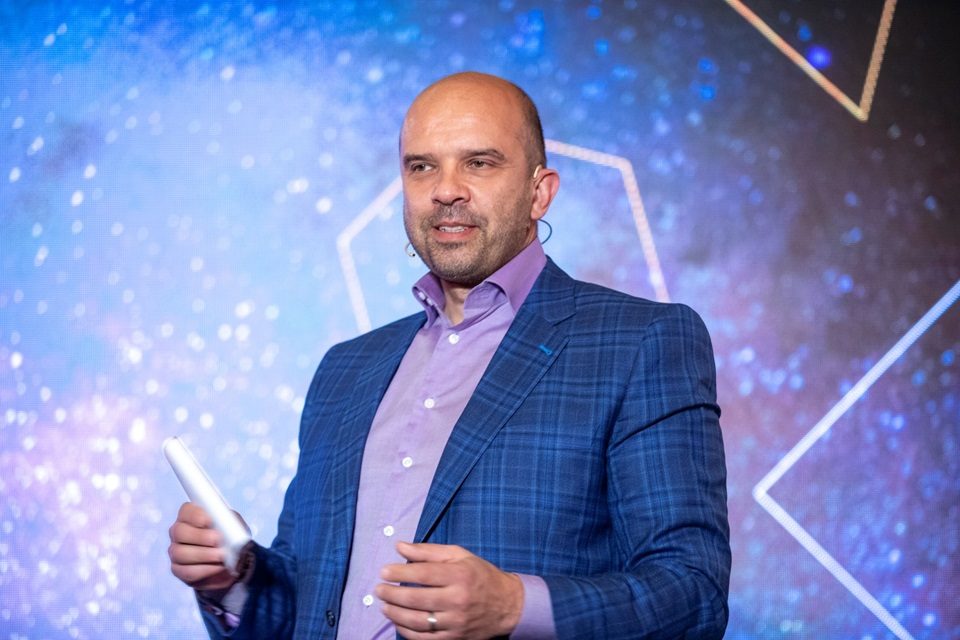PwC CEO Survey 2024: Twice as many executives expect economic growth

The proportion of optimists has doubled in 2024 compared with 2023, with 38 percent expecting the economy to grow, compared with 18 percent last year, according to PwC Global CEO Survey 2024, released at the World Economic Forum in Davos. Implicitly, the proportion of CEOs expecting the global economy to decline has fallen to 45 percent this year from a record 73 percent last year.
“With inflation moderating across countries and macroeconomic volatility no longer perceived as an imminent threat to the economy, business leaders have become more optimistic. We see that the main concern now is the long-term viability of the business, with many questioning whether the current model will still be relevant to the market in a decade’s time. New technologies, climate change and other factors are forcing companies to reinvent themselves,” says Dinu Bumbăcea, Country Managing Partner.
The perceived risk of both inflation and macroeconomic volatility decreased by 16 percentage points (to 24 percent) and 7 percentage points (to 24 percent) respectively. However, this remains the top concern for CEOs globally. Despite ongoing conflicts, the proportion of CEOs who believe they will affect their company has fallen by 7 percentage points to 18 percent. The situation is similar in Romania, where inflation, macroeconomic volatility and geopolitical conflicts remain the top concerns for CEOs this year.
“In Romania, CEOs’ perception of the national economy has improved compared to last year: 37 percent of them expect growth, compared to 26 percent in 2023. As a result, the proportion of those expecting the economy to decline has fallen from 62 percent to 47 percent. Moreover, these forecasts are supported by the European Commission’s estimates that Romania’s economy will grow by 3.1 percent this year, compared to 2.2 percent last year. Despite the improvement in expectations for the macroeconomic situation, local entrepreneurs are more pessimistic about their businesses. The situation can be explained if we take into account the news brought by the fiscal-budgetary policy in the last quarter of last year, many of which have a negative impact on companies, as well as on inflation and the investment climate as a whole,” explains Dinu Bumbăcea.
In Romania, 30 percent of CEOs expect their companies to decline, and 37 percent expect growth, compared to 52 percent in 2023.
Global confidence in economic growth is fragile as megatrends driven by technology – such as generative artificial intelligence – and climate change impact business. Nearly half (45 percent) of CEOs say they do not believe their current business will be viable in a decade if it continues its current trajectory, compared to 39 percent in 2023. Romania follows this trend, with the percentage of CEOs who are pessimistic about the viability of their business in 10 years’ time rising from 27 percent in the 2023 survey to 37 percent this year.
More pessimistic about business performance but planning to hire
Reflecting uncertainty about how to manage megatrends, CEOs are slightly less confident than last year about their own company’s revenue growth prospects over the next 12 months – down from 42 percent to 37 percent globally. However, the survey shows that CEOs are more likely to plan for growth in headcount than decline over the next 12 months, with 39 percent saying they expect to increase their headcount by 5 percent or more.
Technology and climate change
Executives expect pressure from technology, climate change and several other megatrends to increase over the next three years. For example, they overwhelmingly see generative artificial intelligence as a catalyst for reinvention that will drive efficiency, innovation and transformational change. Nearly three quarters (70 percent) believe it will significantly change the way their organisation creates, delivers, and captures value over the next three years. However, they are concerned about an increase in cyber security risks (64 percent), misinformation (52 percent) and legal liability and reputational risks (46 percent).
Nearly a third also expect climate change to change the way they create, deliver and capture value in the next three years, compared to less than a quarter who said the same in the last five years.
The reinvention imperative
The survey shows that smaller companies are at greater risk: 56 percent of CEOs running companies with annual revenues of less than USD 100 million believe that their companies will only be viable for 10 years or less if they continue to operate in the same way. This percentage drops to 27 percent for those with annual revenues of USD 25 billion or more.
The CEO Survey 2024 explores the views of more than 4,700 CEOs from around the world, including Romania.














